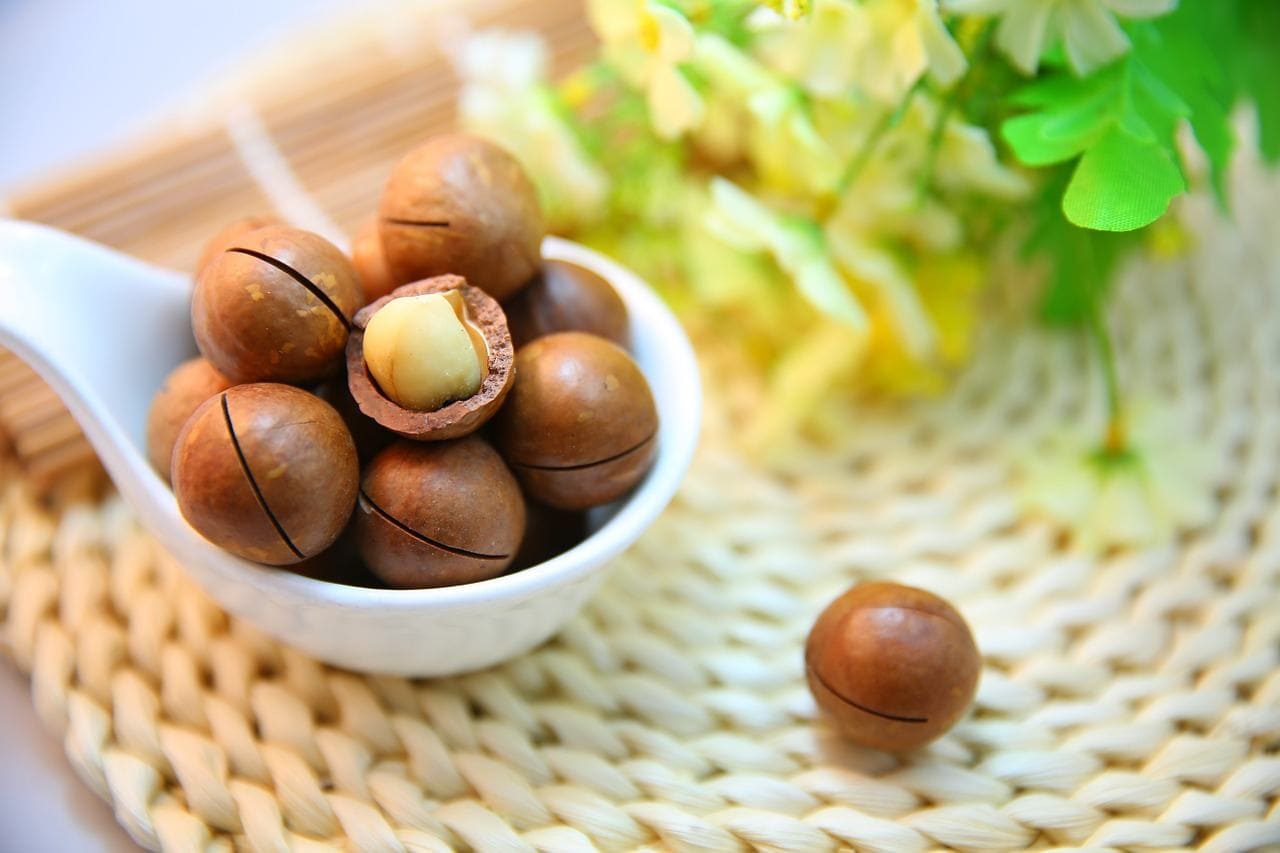
Banana bread is sweet, sticky, and a great way to use up over-ripe bananas. Bananas are the star ingredient in banana bread (unsurprisingly), and dogs can safely enjoy bananas on their own without issue (in moderation). So, what about banana bread? The answer to whether dogs can eat banana bread is yes, but only in certain circumstances.
The reason for caution when feeding your dog banana bread is because of the variety of recipes available and all the ingredients that can be included. Plain banana bread in small portions is unlikely to harm your pup, but we’d advise against giving it to them for reasons we’ll discuss below.
Is Banana Bread Safe for Dogs?
Banana bread’s simplest formulation (bananas, sugar, fat, eggs, and wheat flour) is safe for dogs to eat and non-toxic. It’s not the healthiest thing they can consume since it’s full of sugar, but it won’t harm them if they eat a small piece. As long as your dog is healthy and only eats a small piece of banana bread, the sugar and fat won’t be a problem.
If your dog has health conditions such as allergies, diabetes, or pancreatitis, banana bread should be avoided. Sugar and fat are nearly always used in banana bread, which can exacerbate certain health conditions and cause problems.
Potential Toxins: Raisins, Macadamia, and Chocolate
Some recipes for banana bread (and some you can buy from the store) call for additional ingredients that enhance the flavor. Unfortunately, some of the most common additional ingredients for banana bread are some of the most toxic foods dogs can eat, such as raisins, macadamia nuts, and chocolate.
Raisins
Raisins (along with currants and grapes) are highly toxic to dogs, causing gastrointestinal and urinary system effects, including kidney failure. Veterinary researchers are still determining exactly why raisins have such an effect on some dogs. Signs of toxicity can develop within 6 hours of a dog eating any number of raisins and can include:
Kidney failure from raisins, currants, or grapes develops within 72 hours of a dog eating them and has been recorded in an 18-pound dog eating as few as four to five grapes.

Macadamia nuts
Macadamia nuts are toxic to dogs, and they cause a condition known as Macadamia Nut Toxicity Syndrome. This syndrome causes vomiting, weakness, ataxia, central nervous system depression, and hyperthermia; a small portion of macadamia nuts can harm dogs. Luckily, most dogs that eat macadamia nuts recover within 48 hours, but others will need hospitalization. Not much is known about what causes macadamia nuts to have this effect on dogs, but only 2.4 grams of the nuts per kg of body weight can produce the harmful effects.

Chocolate
Chocolate toxicity is well-documented in dogs and is caused by theobromine and caffeine. Theobromine and caffeine cause changes to a dog’s central nervous and cardiovascular systems and can be fatal. The type of chocolate matters in cases of toxicity since darker chocolate contains higher levels of cocoa; more cocoa means more theobromine and caffeine. When dogs consume chocolate, they can experience these signs:
As little as 1 ounce of milk chocolate per pound of body weight in dogs could be enough for a lethal dose, and a toxic portion of dark chocolate would be even less. It’s important to stress that plain banana bread usually doesn’t have any of these ingredients, but they can be included in store-bought banana bread.

Is Banana Bread Good for Dogs?
Banana bread is unsuitable for dogs because it contains unhealthy ingredients, except for bananas. Bananas in banana bread contain fiber, vitamins C and B6, potassium, and magnesium.
Fiber keeps dogs regular and can soothe gastrointestinal issues such as constipation, and potassium helps regulate and facilitate muscle movement and nerve impulses. However, when bananas are added to banana bread, the sugar and calories can present a problem for dogs that are obese or diabetic.
What Is Better: Store Bought or Homemade?
If you’re giving your dog banana bread, making your own is better since you can decide which ingredients to include or omit. Store-bought banana bread will likely have additional ingredients, such as chocolate or raisins. Xylitol (a sugar substitute) is more common in sugar-free banana bread and is incredibly toxic to dogs. If ingested, only a tiny amount can cause hypoglycemia (low blood sugar), liver damage, and death.
If you’re making your banana bread, try to reduce the sugar in the recipe if you plan to give some to your dog, and make sure there’s nothing toxic added.

How Much Banana Bread Can My Dog Have?
While plain banana bread isn’t harmful to healthy dogs, it’s not good for them due to the fat and sugar. A small piece may not harm your dog, but it’s better to feed healthy commercial dog treats that aren’t overloaded with unnecessary ingredients.
Remember that obese dogs, as well as dogs with pancreatitis or diabetes, should not eat banana bread. Before adding new foods to your dog’s regular diet, please consult your vet for advice.
Final Thoughts
Banana bread can be given to dogs if it’s plain and contains no toxic ingredients like chocolate or raisins. It’s unlikely to harm them in small portions, but large portions are unhealthy since they’re full of fats, sugar, and calories. Healthy dogs should be okay if they steal a piece of plain banana bread, but if you have any concerns or think there may be toxic ingredients in the banana bread, contact your veterinarian immediately.
Featured Image Credit: JumpStory
The post Can Dogs Eat Banana Bread? Vet-Reviewed Facts & Safety Guide appeared first on Pet Keen.






